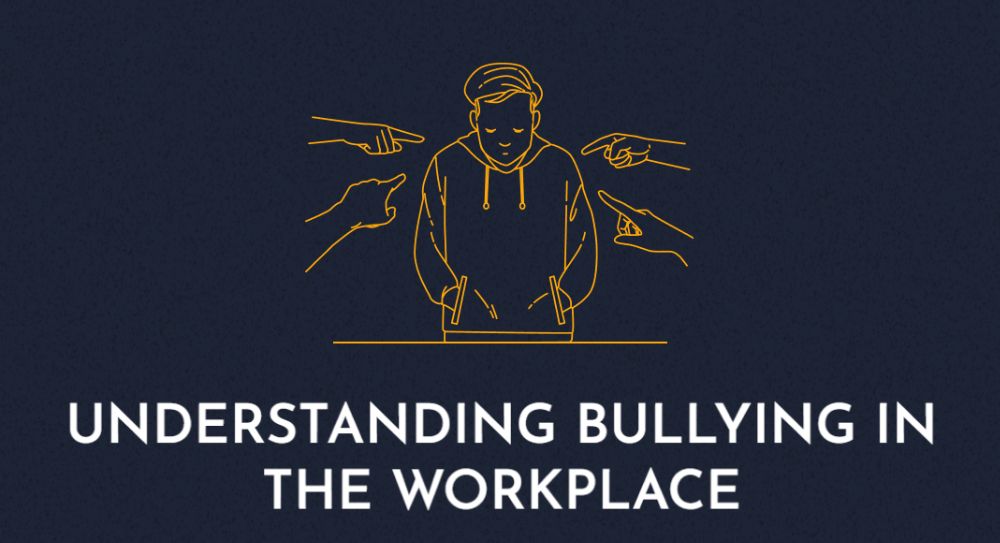
If you are being bullied at work, it is important to understand the nature of workplace bullying and what you can do about it.
Stories of workplace bullying and harassment may seem distant until it happens to you, a loved one, or a friend. While many of us remember the “schoolyard bully,” the same damaging behavior goes on every day in workplaces across the country. Statistically, men are more likely to bully than women, but both men and women bully others. In the same vein, women are more likely to be bullied at their place of employment than men.
Dealing with negative or intimidating behavior at work can be incredibly challenging. If you’re facing this, know you have options to seek help, restore respect, and foster a positive atmosphere where you can thrive professionally.
Attorneys at Brenton Legal regularly represent employees who are harassed or bullied during their work hours. We understand the damage and discomfort a hard-working employee suffers when targeted by a workplace bully. If you are being bullied at work, or know someone who is, a first step toward addressing the situation is to know more about it.
What is workplace bullying?
Workplace bullying is a pattern of abusive behavior whereby one or more employees suffer ongoing intimidation, threat, humiliation, and even physical harm. Bullying occurs at all socio-economic levels and can occur in all workplaces. Most bullying involves a manager, supervisor, or other individuals who hold an influential position over a targeted employee, or group of employees.
Once established in workplace culture, bullying is difficult to eradicate. Being bullied at work can have serious health, emotional, and financial consequences. A steady income is critical to personal stability and in many instances, a bulled employee may feel trapped—unwilling to complain or take steps that might leave them completely out of a job if they report the abuse.
Workplace bullying takes many forms, including verbal abuse, ongoing degradation, pranking, being singled out, social media taunts, or actions intended to obstruct work performance, among others.
A bully in the workplace can be a manager, a co-worker, or others. Being bullied on the job can look like someone who is continually critical of you and your job performance, or it could be someone at any level who pointedly excludes you from activities, meetings, or company culture events.
An important client who is aggressive or harassing can be a bully. Oftentimes, management is reticent to address problems with clients. Bottom line? Workplace bullying is abusive, offensive behavior that occurs over the long term.
What Are the Signs of Workplace Bullying?

Workplace bullying involves repeated, unreasonable actions aimed at intimidating, degrading, or undermining an employee or group. It can be subtle or overt, and over time, it can seriously impact an employee’s mental health, productivity, and job satisfaction.
Common Signs of Workplace Bullying
- Persistent Criticism or Belittling
- Exclusion or Isolation
- Spreading Rumors or Gossip
- Undermining Work or Authority
- Excessive Monitoring or Micromanaging
- Verbal Abuse or Hostile Language
- Threats or Intimidation
- Unfair Workload Distribution
- Blocking Advancement or Development
- Tampering with Personal Belongings or Workspace
Questions to ask yourself if you feel you are being bullied include:
- Are you unfairly targeted with invalid criticism, verbal, or other abuse in your workplace?
- Does someone in your organization single you out for blame or humiliation? Does your company culture dismiss taunts, pranks as “just a joke?”
- Do you feel excluded, targeted, or isolated in your workplace?
- Have you received threatening, offensive, or inappropriate notes, texts, or social media posts?
Hostile behaviors at work impact company culture. Other employees may avoid talking to you in public hoping that they will not be bullied as well. Co-workers and witnesses may commiserate with you but maybe too intimidated to speak up to the bully or to HR. Bullying behavior victimizes not only the individual but the workplace environment.
What is the difference between harassment and bullying?

People in your workplace may talk about being harassed. “Harassment” is a legal term used by the US Equal Employment Opportunity Commission to describe discriminatory “unwelcome conduct” based on race, religion, sex, age, and other specific protected categories. While you may consider yourself harassed, federal protection through the EEOC is geared toward these protected classes as defined by the Civil Rights Act of 1964.
You may be bullied at any time during your career. An employee can be targeted for virtually any reason. The genuinely cruel nature of workplace bullying is the powerlessness of the victim to understand the dysfunctional behavior of the perpetrator or how to avoid being bullied.
How do you stop workplace bullying?
In the US, there is no federal law that prohibits workplace bullying. In 2001, a piece of legislation called The Healthy Workplace bill was introduced. The goal of the legislation was to promote a workplace environment free of maltreatment and bullying.
Part of the bill provided compensation to be paid to employees who had been bullied. The measure was passed in approximately 29 states including Florida, but not ultimately enacted.
Chronic bullying cannot be tolerated. Bullying in the workplace can lead to depression, job loss, difficulty sleeping, a higher risk for an accident, addiction, or chronic illnesses like type 2 diabetes or high blood pressure.
Just about everyone who has been in the workforce understands the toll that workplace bullying takes on an individual and company culture.
What to do if you are bullied in the workplace
- Document your situation: When you notice inappropriate behavior in the workplace, document your treatment on a computer, device, or notebook that is not company property. Note the date, time, description of the event, where it took place, who was involved, and who witnessed the event. Do your best to maintain good job performance and document those efforts. Understand that while you may feel that what is happening to you sounds crazy—keeping contemporaneous notes can help. If you receive texts, emails, notes, documents, or evidence of any kind, carefully maintain these records.
- Review the employee handbook: Take a look at the employee handbook for guidance on policies or chain of command that may exist for reporting bullying, verbal, or other abuse.
- Report the behavior: Your employee handbook may provide a process for reporting abuse. If your workplace bully is your immediate supervisor, think about contacting a Human Resources representative. Document the steps taken to appropriately report the abuse to your employer.
If you are suffering serious, long-term abuse or bullying in the workplace, consider speaking with an attorney whose practice is focused on employment issues before you begin the reporting process.
Do you need legal assistance with workplace bullying?

It is key to know if you are being bullied. A valid performance review that points out shortcomings or areas of improvement is not bullying. A written review that is unjust and demeaning, or a manager who is verbally abusive is bullying.
Speaking with a seasoned employment attorney can be helpful. Many experienced Florida harassment attorneys offer a free consultation to answer your questions. It may be a good idea to speak with an attorney before you report the behavior to your company. The more informed you are, the better your chances of defending yourself and making healthy choices for your future.
Frequently Asked Questions
1. How can you deal with workplace bullying?
Start by documenting the behavior and, if you feel safe, address it directly with the person. You can also report it to your manager or HR. Don’t ignore it—support and resources are available.
2. How do you report workplace bullying?
Follow your company’s reporting process—usually through HR or your supervisor. Keep records of incidents and share any evidence or witnesses. If internal steps don’t work, consider speaking with a legal advisor.
3. How can you prevent workplace bullying?
Promote respect and speak up against harmful behavior. Employers should have clear anti-bullying policies and provide training. A positive, inclusive culture is the best defense.
4. Can you sue your company for workplace bullying?
Yes, in some cases—especially if the bullying involves discrimination or creates a hostile work environment. Laws vary, so it’s best to consult an employment lawyer to understand your options.
5. Do I need a workplace bullying lawyer?
If the bullying is serious, ongoing, or affecting your health or job—and internal reporting hasn’t helped—consulting a lawyer can help you understand your rights and next steps.
Speak with an experienced workplace harassment lawyer in Florida
Located in Palm Beach, Florida, Brenton Legal is an experienced law firm that represents workers who suffer all forms of workplace bullying and harassment or are concerned about FMLA issues, and other employment concerns. If you believe you are being bullied at work, reach out to us for a free consultation. Call 954-639-4644 today.

